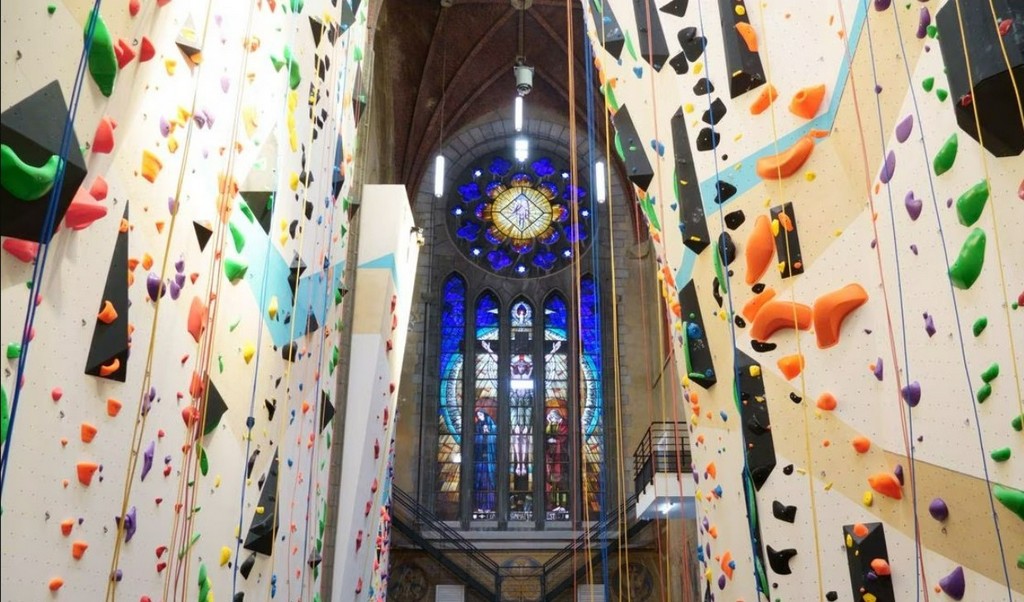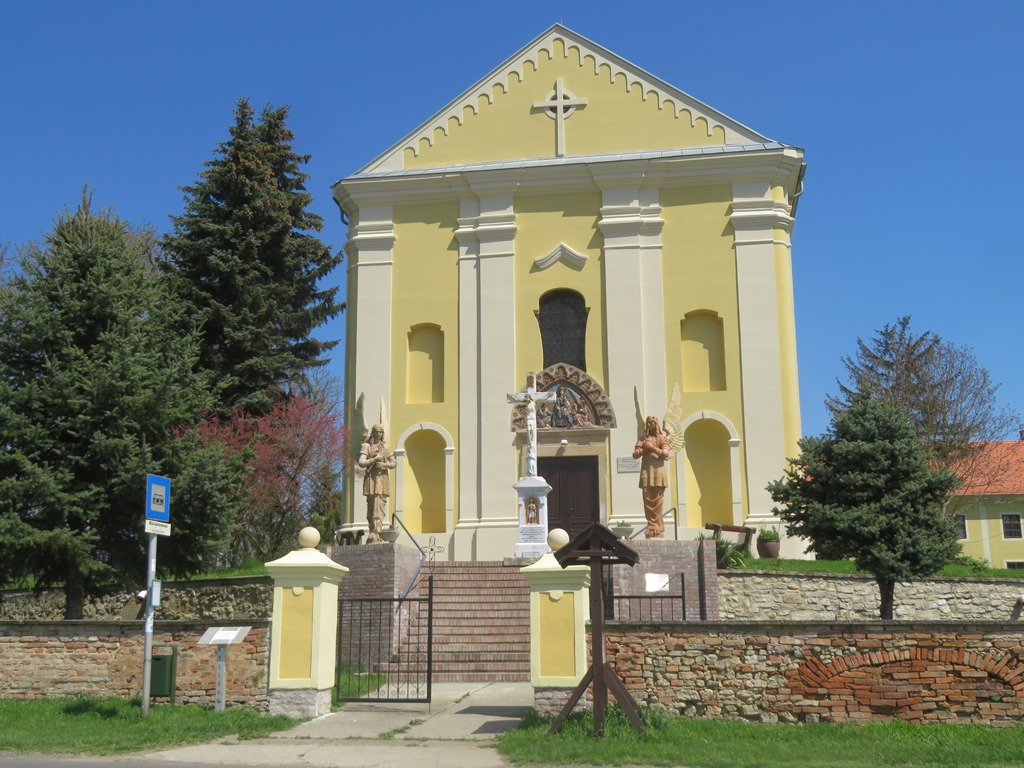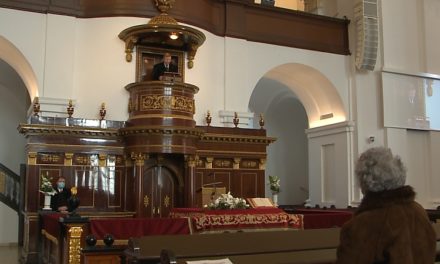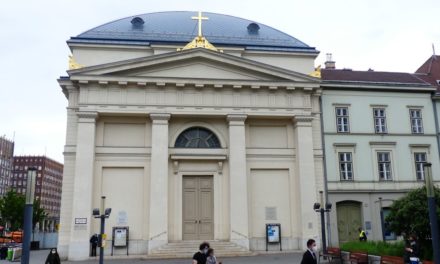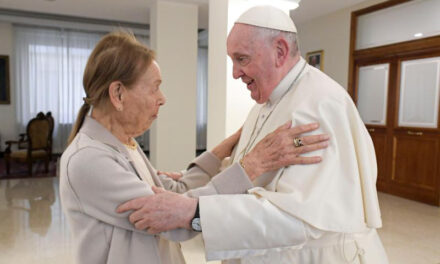Today's politics in Europe have deliberately omitted all references to Christianity from the founding treaties. Could this be one of the reasons why the European political project has stalled? Europe Day, celebrated on 9 May, is a good opportunity to reflect on the possibility of returning to the initial intuitions of the founders.
The first form of political organization at the European level was the Carolingian Empire, which was created in 800, when III. Pope Leo crowned Charlemagne emperor. However, we must not forget that the conversion of Emperor Constantine and the Roman Empire with him five hundred years earlier, in 313, was the first imprint of Christianity in Europe. So Europe was born under the seal of faith.
It should be noted that European Christianity is not only the totality of the Christianity of the nations that make it up, but also has its own dynamics, as evidenced by the great monastic movement in the Middle Ages or the Way of St. James (El Camino), which has survived to this day. All subsequent attempts at European unification, as they refer more or less to this first model, consider Christianity as a unifying element, at least implicitly, including Jean-Jacques Rousseau's European project.
Above the stars
European construction after the Second World War was no exception to the rule. After all, the founders of Europe were staunch Christians. It is said that before the negotiations began, Konrad Adenauer, Alcide De Gasperi and Robert Schuman retreated to a Benedictine monastery on the Rhine to pray and meditate. Robert Schuman put it very clearly when he wrote that "if Europe has been able to open a new era in human history, ... it is because it has been permeated by a civilization rooted in Christianity", or elsewhere:
"Every country in Europe was shaped by Christian civilization: it is the soul of Europe that needs to be revived."
Similarly, the Strasbourg painter Arsène Heitz, who designed the European flag with twelve stars on a blue background, never hid that he was inspired by the Apocalypse of St. John (the Book of Revelation), in which “A great sign appeared in heaven: a woman; His clothing is the Sun, under his feet is the Moon, and on his head is a crown of twelve stars". (Revelation 12:1) The same inspiration can be found in the European hymn, the Ode to Joy: even if the hymn contains no text, the Ode to Joy, set to music by Beethoven, is a Schiller poem that ends with these words: “Do you feel, life, your Creator? The stars hide him! Beyond their tent, the Lord lives there!" (trans. György Rónay)
A false perception of laicity
So we can see that both the idea of the founders and the symbolism of Europe are deeply influenced by Christianity. However, the treaties establishing the European institutions are profoundly silent on this matter. It is true that at the beginning of European politics, the founders were Christian Democrats who did not brag about their faith. American academic Joseph Weiler, the author of the book L'Europe chrétienne, une excursion (Cerf publishing house), published in 2003, explains the apparent lack of Christian references with the false perception of secularism, which forces religious silence on the public sphere. The same silence can be observed among Christian intellectuals, whom Joseph Weiler suspects
they are afraid of not winning the favor of the supporters of the prevailing secular thinking.
The topic was put on the agenda again in 2003 with the draft treaty establishing the European Constitution, prepared by the Convention on the Future of Europe. At that time, there was a debate about whether the reference to European Christian roots should be included in the preamble of the Constitution. II. Despite the express request of Pope John Paul II, the reference was not accepted, especially due to the express opposition of France. As a matter of fact, the reference to the roots may not have been the most fortunate.
Roots refer to the past without necessarily referring to the present or the future. It is possible that they are judged to be appropriative, while other sources undoubtedly exist. Above all, there is a danger that they will be seen as just an undefined cultural reference that does not at all carry the values that represent a commitment for political leaders.
Perhaps it would be better to talk about Christian heritage, the "Christian heritage that has left an indelible mark on our common civilization", as Élizabeth Montfort, a former member of the European Parliament, wrote.
A stalled project
What about Europe's Christian heritage today? We must state that the heirs, at least apparently, are squandering this inheritance rather than making it fruitful. If we are satisfied with just observing things and events, we can come to the conclusion that the European project is possible without Christianity, since this is exactly what is happening. It should also be noted, however, that the European project has stalled and that the causality may not be a coincidence.
So the time has come to redesign Europe, not only returning to the original vision of the founders, but also going beyond it. In this case, what is important is not that Europe proclaims itself Christian, but that it lives and supports Christian values that apply to everyone, believers and non-believers alike, as II. Pope János Pál said in his speech in the European Parliament in 1988.
In this regard, the Brussels Declaration signed by several members of the European Parliament in August 2003 continues to form a relevant basis for the work. In addition to respecting the secular nature of political institutions, it calls for the recognition of religious freedom not only at the individual level, but also at the collective and social level; for dialogue and consultation between churches and communities of believers, as well as European institutions; and to respect the legal status of churches and religious institutions in the Member States.
It also calls for the universal recognition of human dignity in all its manifestations. This includes respect for life from conception to natural death; the recognition of the family based on the marriage of a man and a woman as the fundamental unit of society;
recognition of the principle of subsidiarity in all areas of social life; prioritizing the fight against poverty in partnership with the poorest; and finally, the just distribution of earthly goods and solidarity as conditions for peace.
A paradigm shift
But beyond these particular orientations, the possibility of a Christian Europe requires a complete paradigm shift. After the failure of the European Defense Community, it was decided that Europe should be built on the economy. However, as former MEP Michel Pinton writes, the Christian vision “cannot accept the idea that economic conditioning is sufficient for the birth of a new citizen and a new nation; [this idea] is too similar to the sinister materialist philosophies that claimed that man's consciousness is entirely determined by his social environment.” In his 2014 address to the Parliamentary Assembly of the Council of Europe, Pope Francis clearly rejected "a Europe that revolves around the economy" and stated that
"unity does not mean economic uniformity".
The central themes of Laudato Si', published in June 2015, are: the defense of the universal value of the human person, the rejection of society dominated by the economy and technology, and the protection of the planet against climate change. The encyclical urges a real ecological conversion, the aim of which is to create the conditions for integrated development and human ecology. This message is addressed to the world, but it should resonate especially in Europe, which has all the qualities that make it suitable to become a laboratory for a society based on a comprehensive ecology.
Such a project would enable Europe to remain true to its vocation and look to the future with determination and confidence.
As Jean-Étienne-Marie Portalis, one of the fathers of the Civil Code, said on April 5, 1802, in his speech presenting the Concordat to the Legislature:
"I say this for the sake of my country, I say this for the happiness of the present generation and future generations: extreme skepticism, the spirit of irreligion transformed into a political system is closer to barbarism than we think."
Europe must decide whether it wants to find itself or risk a slow return to barbarism.
Translated by: Adél Görgényi
Source: Aleteia / zarandok.ma
Featured image: Church of Saint Anthony of Padua Maniak Padoue climbing club / dhnet.be

